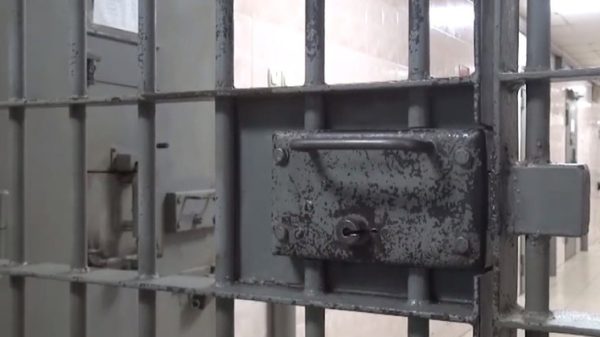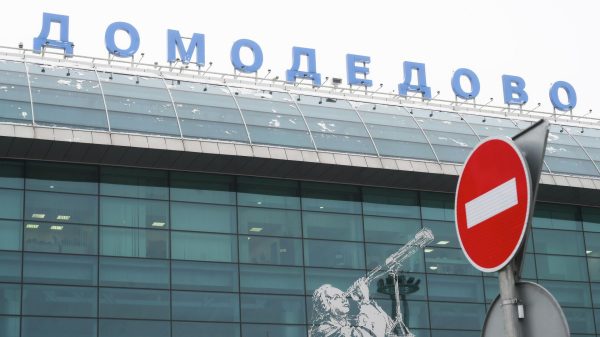 Lord Cameron sworn into the Lords. He insisted that he had direct experience of the ECHR and the need to limit its powers. Photo: ANDY BAILEY/HOUSE OF LORDS/UK PARLIAMENT/PA
Lord Cameron sworn into the Lords. He insisted that he had direct experience of the ECHR and the need to limit its powers. Photo: ANDY BAILEY/HOUSE OF LORDS/UK PARLIAMENT/PA
Lord Cameron has threatened to crack down on European human rights judges if they move to the ECHR. thwart the government's Rwanda plan.
On Monday, the Foreign Secretary sought to reassure anxious Tory MPs with his position on the controversial European Court of Human Rights (ECHR).
Sources said he stressed that the importance of pushing ahead with Rishi Sunak's new plan for emergency legislation and a new treaty, and then taking on Strasbourg if necessary.
His comments came as he appeared before the 1922 Committee of Deputies. Sources said the former prime minister insisted he had first-hand experience of the ECHR and understood the need to limit its powers.
Lord Cameron referred to his own battle to disenfranchise prisoners. the ECHR red line, which he continued to ignore during his time in No 10. Last week he even rejected proposals from his former chancellor George Osborne to withdraw from the ECHR, which some Tories had demanded — it was not said.
Mr Sunak said he would do “whatever is necessary” to ensure migrants can be deported to Rwanda as he considers whether to roll back human rights laws.
< p>The Prime Minister reiterated on Monday that will not allow a “foreign court” to prevent migrants from being deported from the UK, and has vowed to end the legal “merry-go-round” that has been blocking flights to Rwanda since last summer.
Mr Sunak was responding to questions about proposals to waive domestic and international human rights laws to ensure aviation safety.
The Prime Minister has committed to introducing emergency legislation and a new treaty declaring Rwanda safe after how the Supreme Court last week ruled Rwanda's policy was unlawful because it was unsafe for Britain to deport asylum seekers there.
But it has committed to passing emergency legislation and a new treaty declaring Rwanda safe.
is also considering two additional options to limit the ability of undocumented migrants to block their deportation to Rwanda.
One could waive the application of the Human Rights Act to asylum claims to prevent courts from blocking flights. This will force the plaintiff to appeal to the European Court of Human Rights. The process will take time, during which time supporters of the Rwandan policy hope it can be proven that it has worked.
Under the second option, ministers would waive the right of judicial review and include “notwithstanding” clauses, which would allow ministers to ignore the European Convention on Human Rights without withdrawing from the treaty.

Robert Jenrick, the immigration secretary, is promoting both options as a «belt and suspenders» approach to emergency legislation that would bar anyone from bringing a legal challenge to the policy overall but would not prevent individuals from bringing legal challenges to their deportation.
At least half a dozen cabinet ministers are thought to support such a move, which would split the cabinet.
James Cleverley, the home secretary, has previously signaled his opposition to leaving the country. convention and said last week that he does not believe it is necessary to abandon human rights laws to implement the Rwanda plan.
It is understood that Victoria Prentice, the attorney general and a strong supporter of the convention, has indicated that she would not object to the rollback of human rights laws purely on ideological grounds, but she is more concerned about the practical consequences.
< p>She is concerned that that serious exceptions to human rights legislation could make it impossible to pass legislation through the House of Lords, or at least lead to significant delays.
Alex Chalk, the justice minister, another strong supporter of the European Convention on Human Rights, reportedly wants legislation that will implement the policy without necessarily being constrained by «high ideals» and is «waiting to see what form that takes.»
Speaking at a college in Enfield, north London, on Monday, Mr Sunak said: “I am fully committed to doing whatever it takes to get these flights up and running and get this scheme going. Because we have prepared for all circumstances, we are working on a new treaty with Rwanda that will resolve all the issues raised by the Supreme Court.
“We will combine this with new emergency legislation that is crystal clear — and to give Parliament the opportunity to confirm — that Rwanda, for all these purposes, is a safe place to implement our scheme.
“And I will not let a foreign court stop us from getting flights to Rwanda. This is a reasonable country. This is a smart government. But people's patience has run out, and we must put an end to this merry-go-round. And that's what I'm determined to do.”























































Свежие комментарии